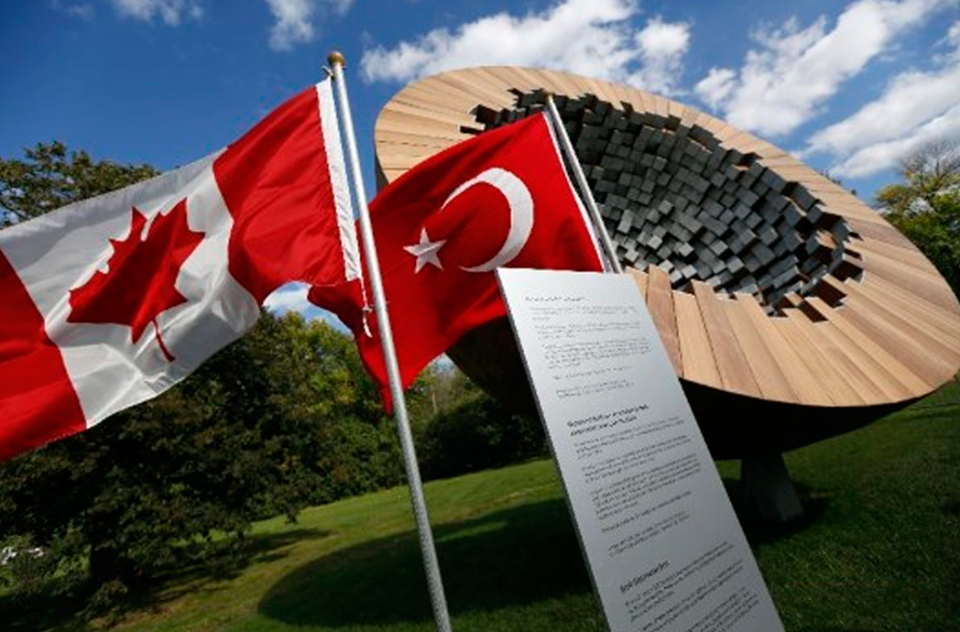More than 30 years ago, a husband and father of two got up in the morning and got in his car to go to work. When he stopped at a red light at the corner of Sir John A. Macdonald Parkway and Island Park Drive in Ottawa, he was shot and killed at point blank range by an Armenian terrorist. Colonel Atilla Altikat was the Turkish military attaché to Canada and the victim of a rare assassination in Canada’s capital. Aug. 27th marks the 34th anniversary of his death. Altikat is the only victim of international terrorism on Canadian soil to date, and his killer(s) have never been found.
Such an event seems out of place for the relatively small and sleepy capital of Canada, but the killing showed that Canada is not immune to global terrorism. According to 2011 Census data, amongst all the G8 countries, Canada has the highest number of foreign-born citizens. In fact, one in five Canadians were born abroad. The significance of this diversity means that a lot of Canadian citizens have varying global ties, and yet, the country rests in relative peace. One reason for this may be that many people immigrate to Canada to escape the violence, prejudice and injustice they’ve experienced in their country of origin. Another is that many people want to live in a free and democratic, secular society that provides equal rights for all regardless of race, religion or sexual orientation. Canada offers this possibility.
In hindsight, the story of Altikat’s murder, tragic and unjust as it was, is less about the threat of terrorism, and has more to do about the consequences of wounds bred from unresolved conflicts.
It’s important to mention that not long after Altikat’s death, on March 12, 1985, gunmen attacked the Turkish embassy in Ottawa. This incident resulted in the death of a Canadian security guard named Claude Brûlé, and injuries to the Turkish ambassador who threw himself through a window to escape the assault. The Armenian Revolutionary Army took credit for the attack.
Armenian groups claimed the violent attacks were retaliation for the Turkish government’s refusal to recognize the Armenian genocide, that they claim was committed by the Ottoman Turks during the First World War. While the Turkish government vehemently denies there was genocide, the Armenians have been successful in having the genocide recognized by many countries, including Canada.
In 2006, Stephen Harper officially recognized the loss of 1.5 million Armenians as the first genocide of the 20th century, a label the Turkish government has not accepted. Canada has a significant diaspora of both Armenians and people of Turkish descent and this historical conflict has simmered here for decades.
Canada has done its duty in remembering the fallen on each side, and commemorating their losses. The Canadian government commemorated the loss of Colonel Altikat on the 30th Anniversary of his death by erecting the Fallen Diplomats Monument at the Corner of Sir John A. Macdonald Parkway and Island Park Drive.
As Harper said when acknowledging the Armenian genocide, “We must never forget the lessons of history, nor should we allow the enmities of history to divide us.”
Some level of division is inevitable in a country made up many diverse faces, cultures, religions, points of views and histories, but it is in striving to see the difference of others not as an affront to one’s personal identity that, in some ways, allows Canada to work as a multicultural nation. Of course Canada is imperfect, but while other countries are closing their borders, afraid of the dangers of difference, Canada has welcomed those differences with open arms, and invites those who choose to live here to hold onto their past, not in anger, but in wisdom.
On the 34th anniversary of Colonel Altikat’s death, on Saturday Aug. 27, there will be a remembrance ceremony held at 2 p.m. at the very spot that Altikat’s life was taken, at the Fallen Diplomats Monument. The Council of Turkish Canadians invites “all peace-loving” people to come commemorate that loss along with them.

